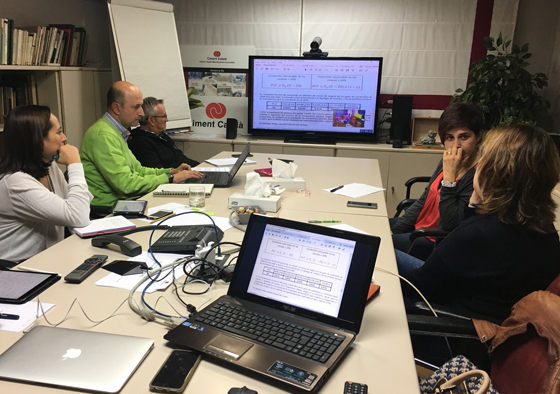The Technical Committee of Ciment Català, formed by representatives of the 4 associated companies, considers that the possibility of new taxes on productive activity represents a serious economic threat to the sector due to the effects it could have on the fiscal area. This positioning refers both to new taxes for activities in the factories and increases of those that are currently applied. And also it refers to double taxation, as when, for example, more than one tax figure affects the same taxable event, be it consumption of resources, polluting emissions or purchase and sale of products. The accumulation of fees can significantly increase the cost of production, making both cement exports unviable, which is the usual way for the sector to overcome periods of crisis, as well as sales in the domestic market.
The imposition of more fiscal pressure on the productive activity will cause a result contrary to the desired one, which would be the increase of the collection. According to the analysis of the Technical Committee, the immediate effect would be the delocalisation of production to other Spanish autonomous communities, to other European countries or even to other continents, with the unemployment of the Catalan centers. This offshoring will imply, in addition to not paying the tax, the possible closure of production facilities and the loss of jobs, as well as the increase in environmental impacts due to the need to import from other areas and countries the products that can not manufacture in our country. It is worth remembering that the Catalan industry is among the most efficient in the world and, therefore, the import, with the additional increase in transport, will only increase the negative impacts of all kinds.
In view of this situation, Ciment Català and the affiliated companies have decided to maintain contacts with public administrations at all levels, to explain the serious situation that can be created and to try to minimize what constitutes a direct threat to their survival.
The meeting of the Technical Committee, held on November 23, also served to analyze the Decree on waste management recently published by the Generalitat and its practical application in relation to the co-processing of waste in kilns for the manufacture of cement. With this Decree it is possible to differentiate the energy recovery from the mere incineration of waste.
The Technical Committee approved the creation of a specific working group to study the application of the Decree in the production processes of the factories in order to ensure compliance with the established criteria regarding the heat capacity of the waste. And is that, according to this Decree, consider an energy recovery and not an incineration depends on the conditions of the combustion gases (temperature and composition) and not only the characteristics of the waste.

